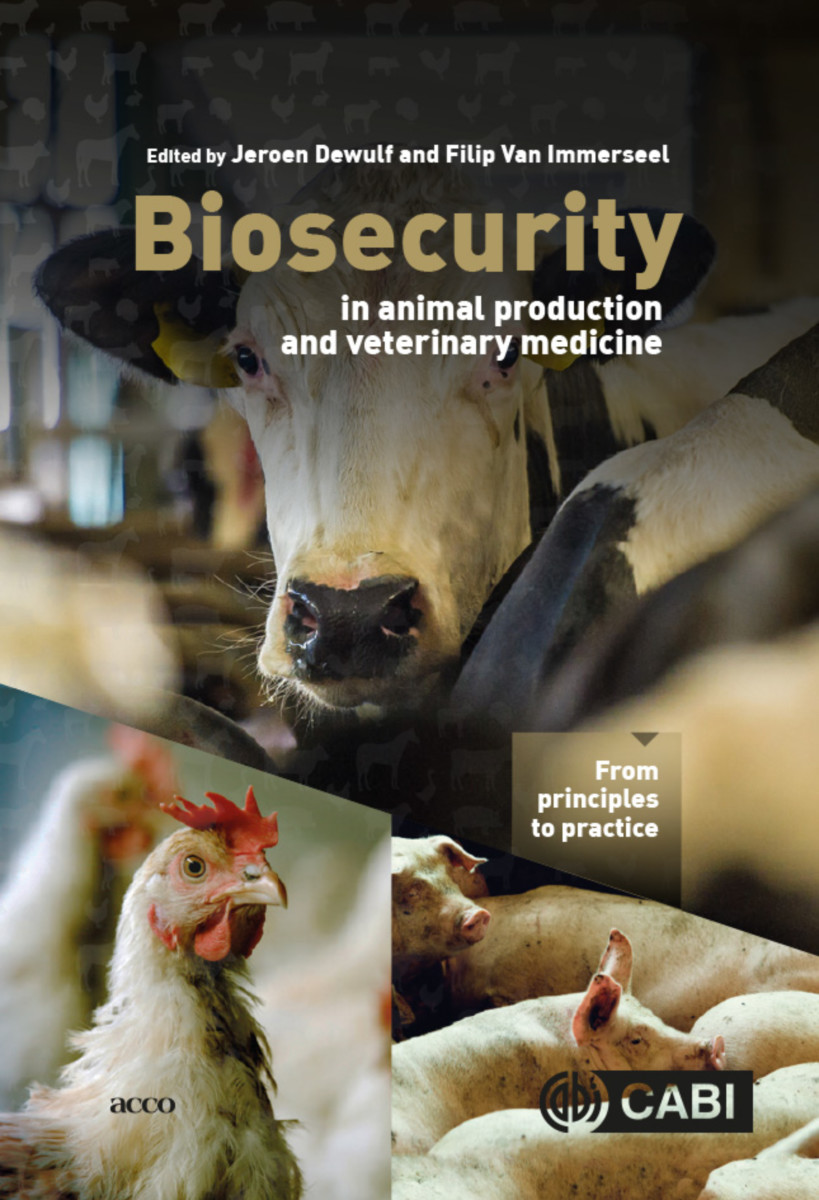Biosecurity in Animal Production and Veterinary Medicine
From Principles to Practice
- Publisher
CABI - Published
9th June 2020 - ISBN 9781789245684
- Language English
- Pages 544 pp.
- Size 6" x 9"
- Images full color illus throughout
Globally, the way the animal production industry copes with infectious diseases is changing. The (excessive) use of antimicrobials is under debate and it is becoming standard practice to implement thorough biosecurity plans on farms to prevent the entry and spread of pathogenic micro-organisms. A good biosecurity plan benefits not only farm animal production, but also facilities where companion animals are kept, including veterinary practices and clinics. Biosecurity in Animal Production and Veterinary Medicine is the first compilation of both fundamental aspects of biosecurity practices and specific and practical information on the application of the biosecurity measures in different animal production and animal housing settings.
The book starts with a general introductory chapter on the epidemiology of infectious diseases, followed by a chapter explaining the general principles of biosecurity. Specific topics of biosecurity, including rodent and insect control, cleaning and disinfection, hygiene and decontamination of feed, drinking water and air, and measuring the biosecurity status of farms, are detailed in dedicated chapters. Explanations on the relevance of the implementation of biosecurity plans in order to improve animal health and performance and reduce antimicrobial usage are described, and a chapter on ways to motivate farmers to implement a biosecurity plan has been included. Practical chapters deal with biosecurity in the poultry, pig and cattle industry, horse facilities, dog kennels, veterinary practices and clinics and laboratory animal facilities.
The book is a practical guide that can be used by farm and animal facility managers, consultants, veterinarians, animal caretakers, and people with an interest in prevention of diseases in animals. Academics and students will benefit from the book because it contains all relevant information on animal biosecurity.
1: Circles of Disease Transmission
2: General Principles of Biosecurity in Animal Production and Veterinary Medicine
3: Biosecurity and its Relationship with Health, Production and Antimicrobial Use
4: How to Motivate Farmers to Implement Biosecurity Measures
5: How to Measure Biosecurity and the Hygiene Status of Farms
6: Cleaning and Disinfection
7: Hygienic Aspects of Air and Decontamination of Air
8: Feed Hygiene
9: Drinking Water Hygiene and Biosecurity
10: Promoting Biosecurity through Insect Management at Animal Facilities
11: Rodent Control in Animal Production
12: Transmission of Pig Diseases and Biosecurity in Pig Production
13: Transmission of Poultry Diseases and Biosecurity in Poultry Production
14: Transmission of Cattle Diseases and Biosecurity in Cattle Farms
15: Biosecurity for Horse Facilities
16: Biosecurity Measures for Dog Merchants and Canine Breeding Kennels
17: Biosecurity in Veterinary Practices and Clinics
18: Biosecurity in Laboratory Animal Research Facilities
19: Biosecurity in Aquaculture: Practical Veterinary Approaches for Aquatic Animal Disease Prevention, Control, and Potential Eradication
Jeroen Dewulf
Jeroen Dewulf serves as a full professor in Veterinary Epidemiology at the Faculty of Veterinary Medicine of Ghent University. His primary research interests include antimicrobial use and resistance in animals, as well as the prevention of epidemic and endemic diseases with an emphasis on biosecurity. He is passionate about turning data in to veterinary expertise and policy for the benefit of animal and human health. He is a prolific author with (co-)authorship of over 400 A1 publications in the field. Recently, he co-founded the spin-off company Biocheck.Gent and coordinates the EU research consortium BIOSECURE, which focuses on cutting-edge research in biosecurity in terrestrial animal production.
Filip Van Immerseel
Dr. Filip Van Immerseel is professor at the Department of Pathology, Bacteriology and Avian Diseases at the Faculty of Veterinary Medicine of Ghent University, Belgium. Being a scientist with a research group on host-bacterium interactions in animals, he has specific interest in prophylaxis of infectious diseases. His group already published over 175 international papers on intestinal health and diseases in production animals and is involved in a variety of research projects on alternatives to antibiotics. He is lecturer of Biosecurity and Hygiene for veterinary students.


